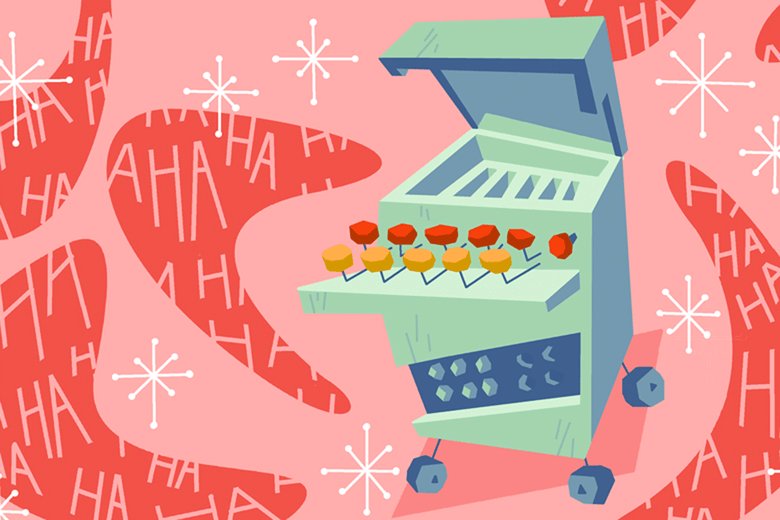Community, Leadership, Experimentation, Diversity, & Education
Pittsburgh Arts, Regional Theatre, New Work, Producing, Copyright, Labor Unions,
New Products, Coping Skills, J-O-Bs...
Theatre industry news, University & School of Drama Announcements, plus occasional course support for
Carnegie Mellon School of Drama Faculty, Staff, Students, and Alumni.
CMU School of Drama
Wednesday, May 02, 2018
Charlie Douglass and his Laff Box invented the laugh track as we know it.
slate.com: Douglass was a mechanical engineer who had worked on radar for the Navy in World War II, so he knew his way around audio and electronics. In 1950, The Hank McCune Show, a mostly forgotten series from NBC, had used a rudimentary laugh track. But by 1953, Douglass had developed a better way to insert a laugh into a show. If you’ve ever watched an old sitcom, you’ve almost certainly heard his work.
Subscribe to:
Post Comments (Atom)

2 comments:
I think this is a really interesting facet of sound design and television in general. To be able to capture one audience's reaction to something and change it to fit almost any funny line in any show is something pretty impressive. I used to have an aversion to hearing laugh tracks because I thought they seemed so fake, but then I realized that a lot of the shows that I thought had laugh track were actually in front of live audiences. That just goes to show how convincing laugh tracks can really be. Used well, it can be hard to tell the difference. It is a strange concept to make an audience's reaction a part of a tv show, but if you think about it, it makes sense. Shows are meant to be watched by large audiences. Laughter is a part of it. No one wants to be the only one laughing at a joke. I have noticed shows that do not have laugh tracks or live audiences, and the jokes always seem to fall flat. This might be a result of me being used to hearing laughter with shows, but it still makes a difference.
I didn’t expect much from this article- maybe an explanation of a sound board that plays laughs or an interview with a sound designer that decides what laughs go where. But what I found was a sweet article about one man who created a machine in his home that he could play like an instrument. I too thought of laugh tracks as being stilted, an effort by the producers to tell a dumb audience when they a joke was told. But the more I watch shows the have laugh tracks- or more accurately the more often I watch a show from the start- the more I realize that the audience laugh track, when done well, evolves as the episode airs and is very different joke to joke. The laugh isn't just the same stilted laugh, the raucousness of it changes, the number of people changes, sometimes a bunch of people laughing at once, sometimes one louder person with a few others. It brings you into the show and makes it feel like a communal event.
Post a Comment